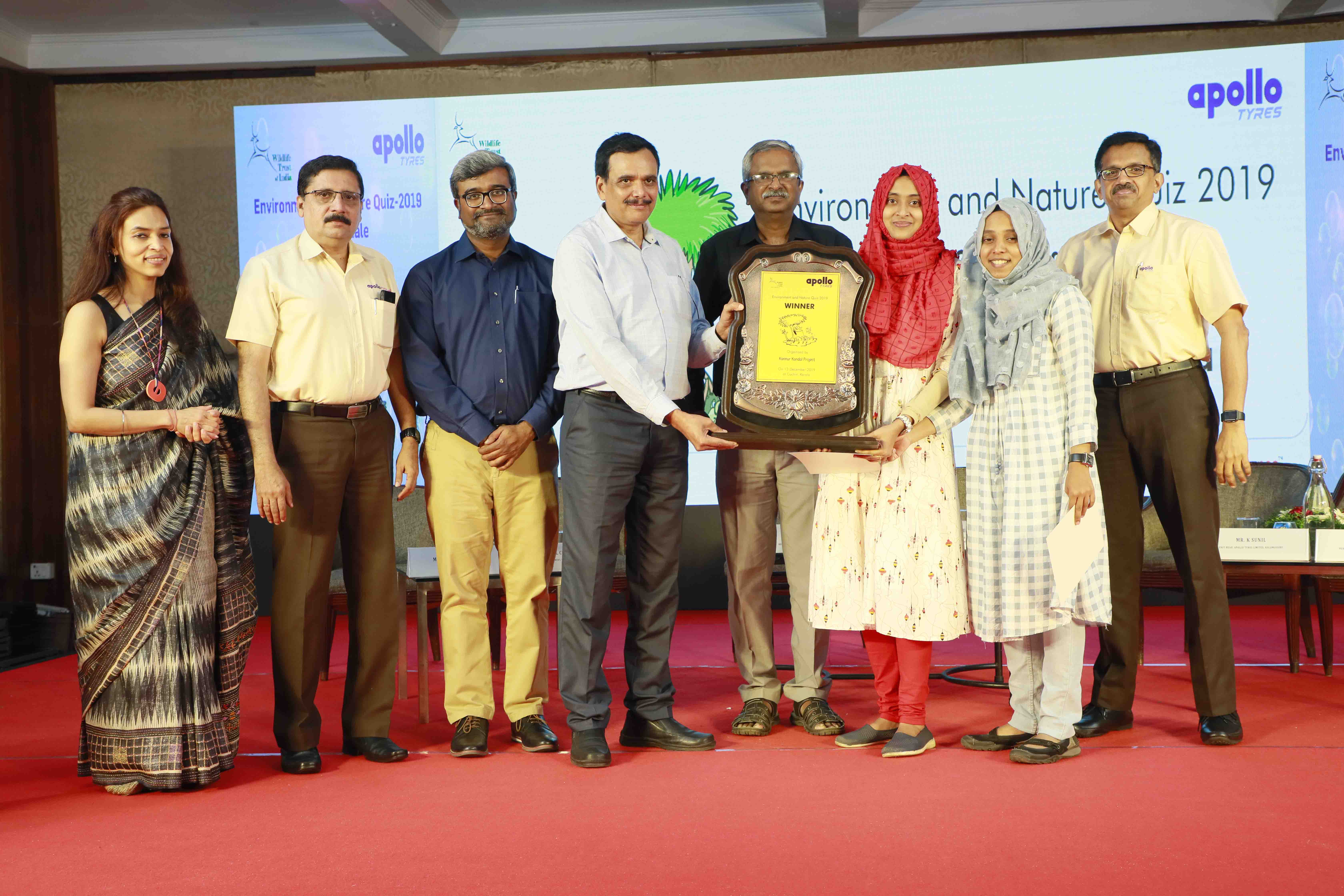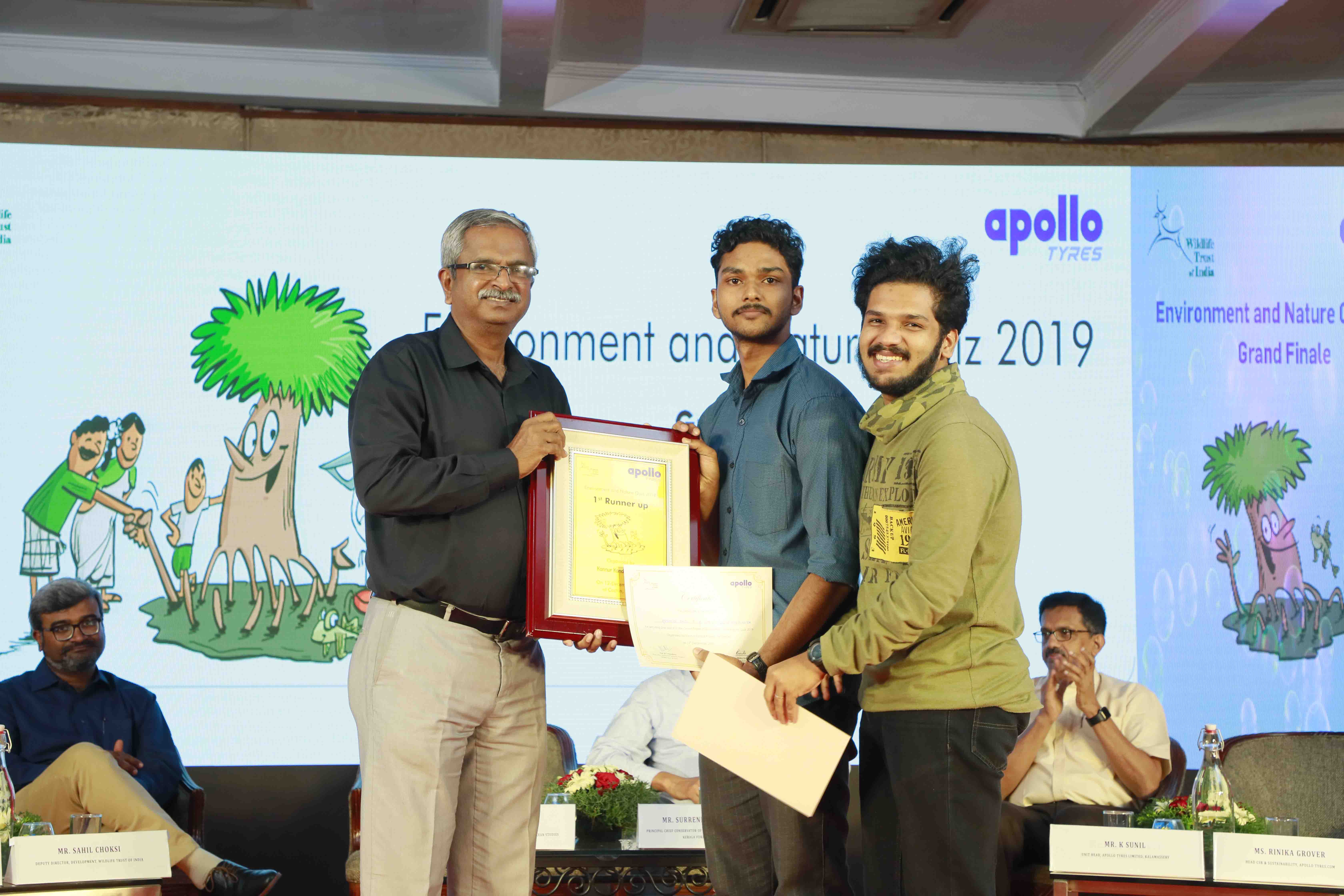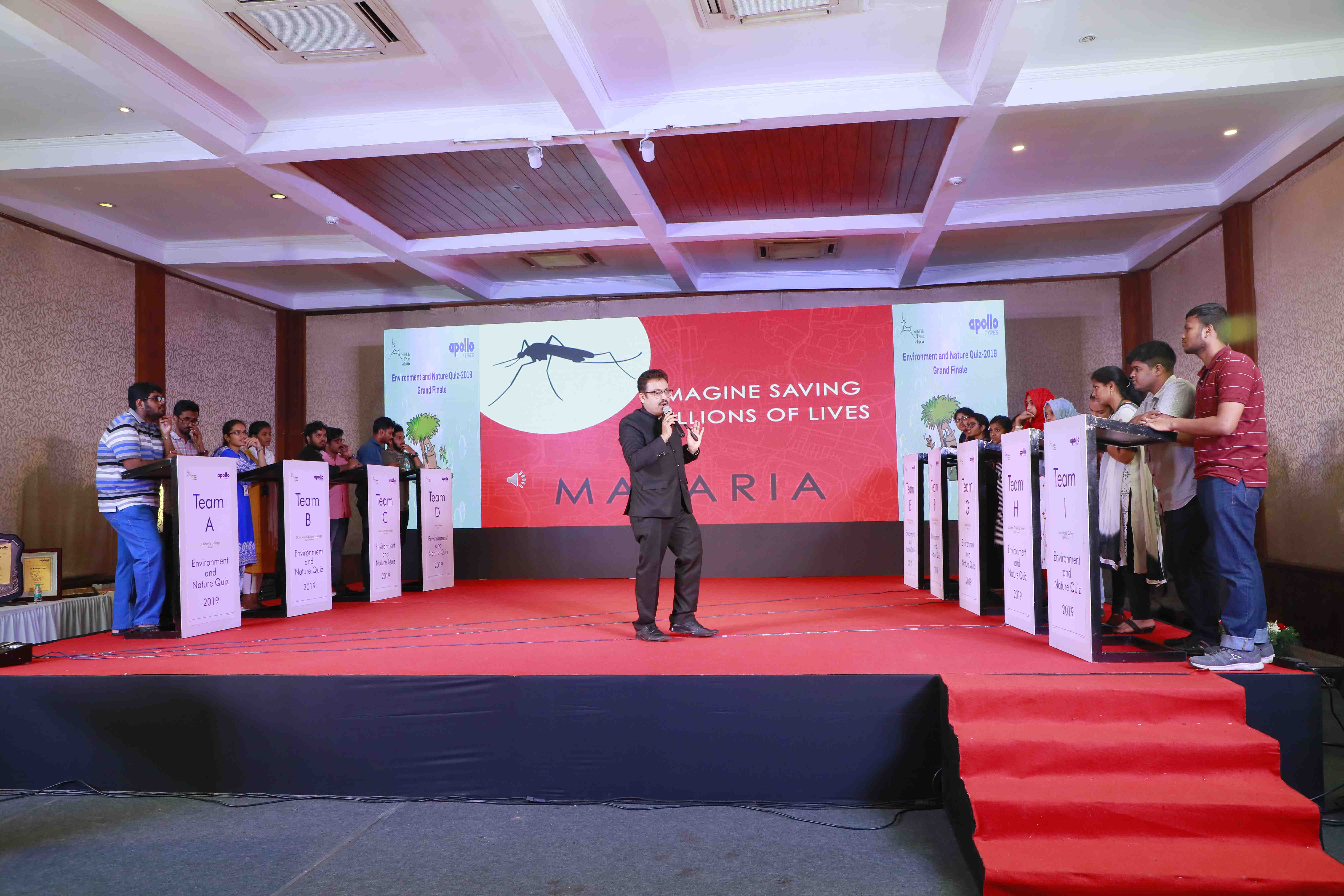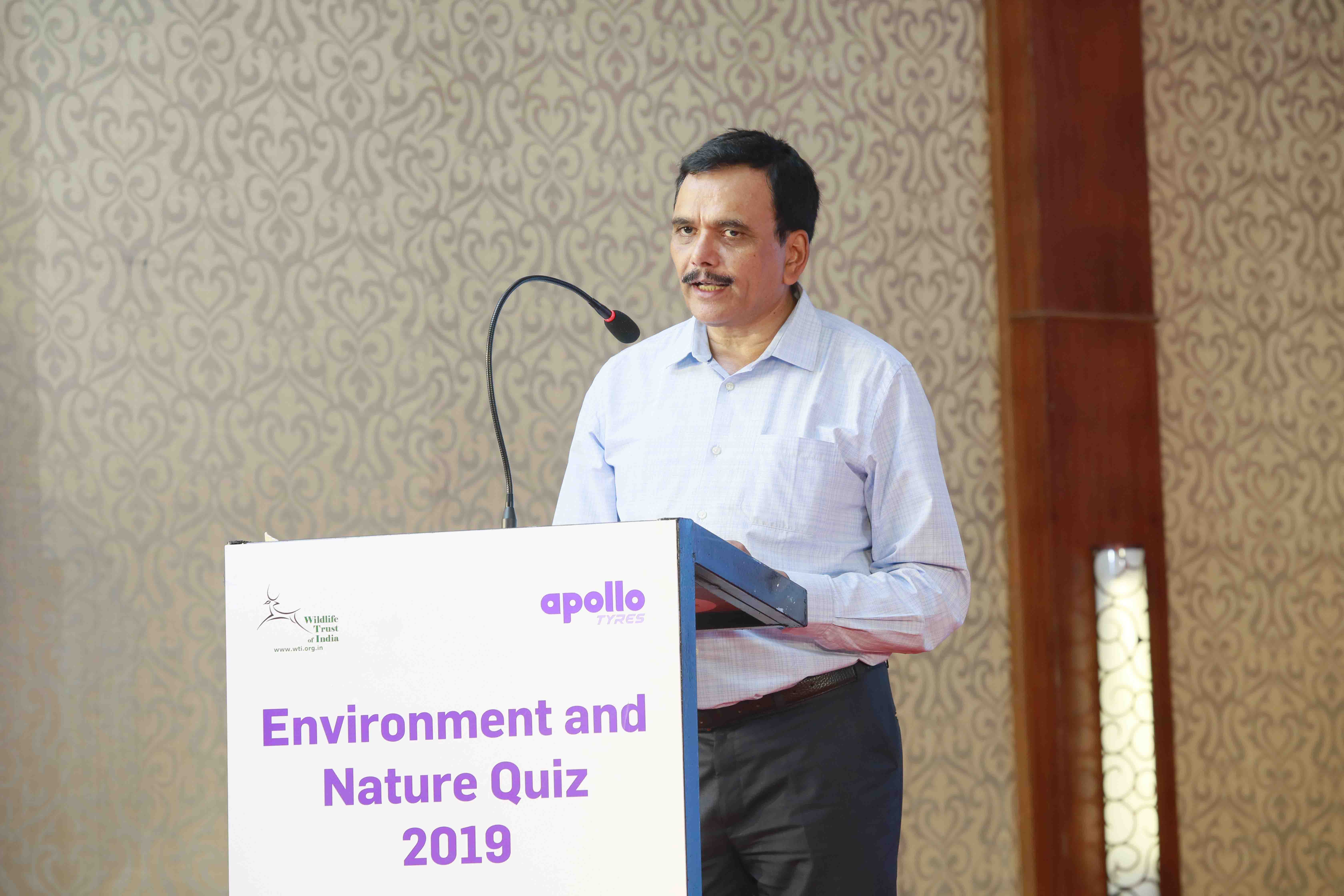Cochin, Kerala: The mangrove conservation project referred to as ‘Kannur Kandal project’, initiated by Wildlife Trust of India (WTI) in partnership with Apollo Tyres, conducted interstate Environment and Nature Quiz Grand Finale yesterday at Hotel Tag Gateway, Cochin. Shri Surrendra Kumar, IFS (PCCF and CWLW) Kerala Forest Department was the Cheif Guest for the prize distribution ceremony and Guest of honour was Dr B Manoj Kumar, Registrar, Kerala University for Fisheries and Ocean studies (KUFOS). Teachers and students of various colleges, representatives of NGOs, were present along with representatives of WTI and Apollo Tyres.
The main focus of the contest was spreading awareness of mangroves along with environment and nature amongst the college students.
Nine colleges from three different coastal states viz, Kerala, Andhra Pradesh and Tamil Nadu had participated in the grand finale round. Farook College, Calicut, Kerala won the competition followed by Christ College, Irinjalakuda, Kerala and St. Alberts College, Ernakulam Kerala at second and third positions respectively.




Guest of Honour Dr B. Manoj Kumar, Registrar, KUFOS said that “Plastic is one of the major pollutants and are affecting the aquatic ecosystem especially mangroves. He urged the students to stop the use of plastics completely.”
Commenting on the initiative, Chief guest Shri Surrendra Kumar IFS said “Human-animal conflict is one of the issues that need attention and to address this, awareness creation is essential. Since students are important stakeholders, and they are the torchbearers of the conservation, these initiatives are areally appreciable”. He also added that the efforts of Kannur Kandal Project are very commendable in safeguarding and protecting the mangroves of Kannur.
The Kannur Kandal project aims at ensuring the survival of the existing mangroves and increase the acreage of such habitats across Kannur, potentially making it a prototype for other coastal districts of Kerala and a model for rest of the country. The project is based in Kunhimangalam village, which is one of the largest mangrove villages of Kerala. It has established a Mangrove Interpretation Centre, located in the natural ecosystem, for mangrove-based research and education, and the promotion of mangrove restoration through community and government participation. A mangrove nursery has been established, and community-based initiatives launched to enhance public awareness and reduce threats to mangroves. Special efforts are being made to generate scientific interest about mangroves among the youth.
Mangrove forests are unique ecosystems, extremely rich in biodiversity, growing along with inter-tidal coastal habitats such as shorelines, estuaries and backwaters. They are both refuges and nurseries for a large variety of threatened terrestrial and aquatic species, and an essential source of fodder, medicines and firewood for people living in coastal communities. They also act as barriers against cyclones and tsunamis, prevent coastal erosion, and maintain inland water quality by avoiding seawater intrusion; however current estimates indicate that up to 67% of mangroves have been lost to date.